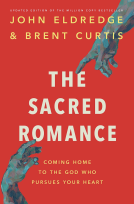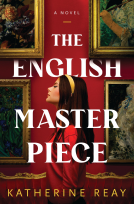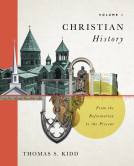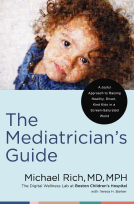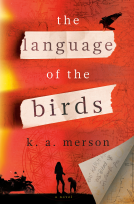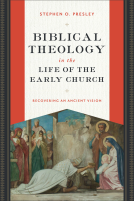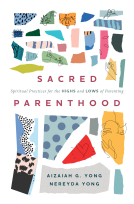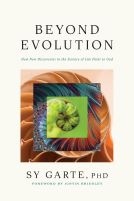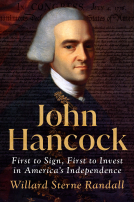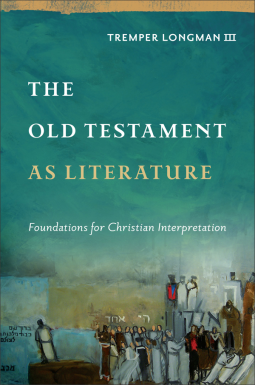
The Old Testament as Literature
Foundations for Christian Interpretation
by Tremper Longman III
This title was previously available on NetGalley and is now archived.
Send NetGalley books directly to your Kindle or Kindle app
1
To read on a Kindle or Kindle app, please add kindle@netgalley.com as an approved email address to receive files in your Amazon account. Click here for step-by-step instructions.
2
Also find your Kindle email address within your Amazon account, and enter it here.
Pub Date Jun 25 2024 | Archive Date Sep 16 2024
Baker Academic & Brazos Press | Baker Academic
Talking about this book? Use #TheOldTestamentasLiterature #NetGalley. More hashtag tips!
Description
This first volume explores the importance of reading the Old Testament as literature. Each culture tells its stories and writes its poems in different ways. To read and understand the Old Testament texts the way the ancient authors intended, we need to be aware of the conventions of Hebrew storytelling and poetry that they used. In part 1, dealing with literary theory, Longman investigates how texts create meaning, the history of the study of the Old Testament as literature, and how genre dictates reading strategy. He explores the Hebrew conventions for both narrative and poetry in conversation with contemporary literary approaches. Parts 2 and 3 delve into practice, using the tools gained in part 1 to analyze and interpret a variety of Old Testament narratives and poetry.
Longman's accessible writing and balanced judgments make this book suitable for the classroom and the church.
Advance Praise
“For decades Tremper Longman has been teaching the Old Testament and writing about it in a thoughtful and lively way. This volume illustrates how he has immersed himself in scholarly study with an open mind but has never forgotten his commitment to the fact that it is the Holy Scriptures he is studying. His wide-ranging survey of scholarly approaches to the Old Testament as literature is strengthened by a number of illuminating studies of particular texts.”—John Goldingay, senior professor emeritus of Old Testament, Fuller Theological Seminary
“In this volume, Longman has returned to his first love, with his Literary Approaches to Biblical Interpretation (1987) standing at the beginning of a long shelf of his books and The Old Testament as Literature as its complementary bookend. This work offers insight from decades of biblical reflection and foresight from the contemporary field of literary studies.”—Brittany N. Melton, associate professor of Old Testament, Regent College
“The Old Testament is a diverse body of literature, but Longman has turned this fact into an invitation to explore the Bible’s rich tapestry of meaning. Up-to-date on recent developments in literary theory, the author takes his readers on an adventure in genre analysis and shows how it is critical for understanding texts. While recognizing that the authors of Scripture did not have twenty-first-century readers as their audience, Longman demonstrates how the literary study of texts can help bridge the chasm.”—William P. Brown, professor of Old Testament, Columbia Theological Seminary
“I unhesitatingly recommend Longman’s masterful new exploration of the literary dimensions of the Old Testament, the fruit of over four decades of scholarly reflection. With his wide learning and profound expertise, Longman offers readers an engaging journey through the narrative and poetic landscapes of the biblical texts. He shows how literary art is not merely ornamental but foundational to how biblical texts convey their meanings. His analysis is both scholarly and accessible, making this an invaluable resource for students, scholars, and church members alike. This book is not only a powerful testament to Longman’s deep understanding of the subject but also a vital guide for anyone seeking to deepen their appreciation and comprehension of the Old Testament as a rich literary treasure. It is highly recommended for its appreciative, insightful, and transformative approach to biblical literature.”—Stephen L. Cook, The Catherine N. McBurney Professor of Old Testament Language and Literature, Virginia Theological Seminary
“Longman expertly guides readers through the literary dimensions of Old Testament interpretation. Richly informed by the key theoretical discussions, Longman grounds this work in carefully worked and well-chosen examples from the Old Testament. Readers thus see that attention to the issues discussed deepens our understanding of the text. This is an essential volume for Old Testament hermeneutics.”—David G. Firth, Trinity College, Bristol
“The present book is devoted to literary matters, providing rich overview and detailed background alongside finely crafted close readings. Drawing from the cistern of a long career, Longman engages a range of biblical texts across the spectrum of narrative, poetry, and wisdom with rigor and insights from start to finish.”—Keith Bodner, Stuart E. Murray Professor of Religious Studies, Crandall University
Available Editions
| EDITION | Other Format |
| ISBN | 9781540961310 |
| PRICE | $34.99 (USD) |
| PAGES | 304 |
Available on NetGalley
Featured Reviews
 Yakub T, Educator
Yakub T, Educator
As an Old Testament scholar, Tremper Longman beautifully approach The Old Testament as a literature narrative to interpret. This brings to us a lot of new meaning that can be apprehended and to be told to our audience through perspective of a story. With rich overview and background detail, Longman do a careful work through well-chosen examples from the Old Testament.
 Andrew P, Reviewer
Andrew P, Reviewer
Overview
Longman’s book sets out to bridge the gap between traditional biblical studies and modern literary analysis, advocating for a literary approach to the Old Testament that appreciates its narrative and poetic forms. The book is divided into parts discussing literary theory, prose narratives, and poetic texts, making a compelling case for viewing the Old Testament through a literary lens.
Part One: Literary Theory and the Conventions of Biblical Narrative and Poetry
The Location of Meaning
Longman discusses how meaning is constructed in texts, emphasizing the interaction between author, text, and reader. He advocates for a nuanced understanding that considers the text's final form as the locus of meaning, moving beyond traditional historical criticism.
Quote: "Authors write texts to readers... it seems reasonable to locate a literary text’s meaning in the intention of the author."
History of the Study of the Old Testament as Literature
This chapter traces the evolution of literary approaches to the Old Testament, critiquing past methodologies and highlighting the shift towards literary analysis in recent decades.
Quote: "Historical criticism was the predominant acceptable approach... now, we see the value in a literary approach."
Genre Triggers Reading Strategy
Longman elaborates on how understanding genre can aid in interpreting biblical texts, discussing how different genres have different conventions that guide interpretation.
Quote: "Genres help authors construct meaning and make that meaning accessible to readers."
Narrative Prose as Genre
The focus here is on the conventions of biblical narrative, with Longman exploring how narrative techniques and structures convey theological and moral truths.
Quote: "Every culture develops distinctive codes for telling its stories."
Poetry
The poetic aspects of the Old Testament are analyzed, with attention to features like parallelism and imagery that enrich the text’s meaning.
Quote: "Hebrew poetry uses parallelism and figurative language to deepen the interpretive experience."
Intertextuality
This chapter delves into how Old Testament texts refer to and reinterpret each other, enriching their meanings and connecting different parts of the Bible.
Quote: "Intertextuality enriches our understanding of individual texts through their dialogue with other scriptures."
Part Two: The Analysis of Illustrative Prose-Narrative Texts
Literary Readings of Prose Narratives from the Torah
Longman provides literary analyses of key narratives from the Torah, illustrating how literary forms shape their theological content.
Quote: "The Torah's narratives are not just historical records but are deeply literary in their construction."
Literary Readings of Prose Narratives from the Historical Books
Similar analysis is applied to the historical books, with a focus on how these narratives use literary techniques to communicate their messages.
Quote: "Literary techniques in the Historical Books serve to highlight the divine hand in Israel’s history."
Part Three: The Analysis of Illustrative Poetic Texts
Literary Readings of Poetic Texts from the Psalms
Longman explores the literary features of the Psalms, showing how their form and structure enhance their emotional and spiritual impact.
Quote: "The Psalms' poetic form is integral to their function as prayers and hymns."
Literary Readings of Poetic Texts from Wisdom Literature
The wisdom literature is examined for its poetic and philosophical depth, emphasizing how literary analysis can uncover layers of meaning.
Quote: "Wisdom literature uses poetry to probe deep philosophical and existential questions."
Literary Readings of Poetic Texts from the Prophets and Epic Poetry
The prophetic books and their use of epic poetry are analyzed, highlighting how they use literary forms to convey prophetic messages.
Quote: "Prophetic texts combine poetry and rhetoric to powerful effect, urging the community to action."
Conclusion
"The Old Testament as Literature" by Tremper Longman III is an essential read for those interested in the literary dimensions of the Bible. Longman’s detailed analysis provides readers with new tools for appreciating the Old Testament's complex literary beauty and its profound theological depth. This book is not only a significant academic resource but also a testament to the enduring power of biblical literature.
Overall, this book is a great summary of a lot of different approaches to viewing the Old Testament as literature. The author is clearly knowledgeable about scripture, the overarching theme of the story of the Bible, and how to clearly communicate points of view on a wide variety of topics. Each section is well organized to a certain theme, but I did find at times I got lost in the hypothesis and overall point he was trying to make which may have been that I am a layperson vs a educated theologian. The language and vocabulary is a high entry bar which does benefit the book but can slow down a layperson like me in grasping the points of each explanation on a wide variety of topics. I do think this book leans into a more summary of theories rather than a new approach on certain topics but I do believe that is the intention. I would recommend this book as a layperson interested in how to read the Old Testament better knowing that grasping the entire book will take time and likely reading sections at a time during bible study as a reference.
The Old Testament as Literature: Foundations for Christian Interpretation
By, Tremper Longman III
This is volume 1 in a planned three-book project on the Old Testament. Tremper Longman III is a wonderfully accessible and readable scholar. In this volume Longman is providing an overall summary of a variety of literary approaches to the Old Testament text. This is a great volume to savor over time to draw out the riches present in the Old testament.. I can see this a volume uses in College and Seminary classes.
A helpful overview of the text topics…
Part One: Literary Theory and the Conventions of Biblical Narrative and Poetry
• The Location of Meaning
• History of the Study of the Old Testament as Literature
• Genre Triggers Reading Strategy
• Narrative Prose as Genre
• Poetry
• Intertextuality
Part Two: The Analysis of Illustrative Prose-Narrative Texts
• Literary Readings of Prose Narratives from the Torah
• Literary Readings of Prose Narratives from the Historical Books
• Part Three: The Analysis of Illustrative Poetic Texts
• Literary Readings of Poetic Texts from Wisdom Literature
• Literary Readings of Poetic Texts from the Prophets and Epic Poetry
Ultimately the Old Testament is a collection of written works designed to communicate some idea or concept to a particular audience. The tools used by the various authors and redactors are not new; they relied upon the same forms and techniques used in contemporary literature that were already well known to their audience … sending signals to their readers to enable them to correctly interpret the intending meaning of the text. While much of the text has developed over time, and many scholars seem to be focused on extracting the original text and meaning, the author here recommends that we focus on the final version and how it has been traditionally interpreted through the ages since as a starting point. Part One covers the current state of scholarship for studying the Old Testament as Literature, including some background on how we got here and what literary devices and concepts are used in understanding the authors’ intent as well as how parts of the text or “books” work with other text or “books” of the Old Testament. And while this is an extremely academic undertaking, it remain accessible to the causal reader (although repetition and independent study would also be very helpful). What makes this work exception is Parts two and three where everything that was covered in Part one is illustrated with analysis of specific parts of prose and poetic text … although this also tends to be very technical and, at times, difficult to follow for me (which is why this is something to periodically come back to). Over all, this book can only help any student of scripture that is interested in biblical exegesis.
Readers who liked this book also liked:
Publishers Lunch
General Fiction (Adult), Nonfiction (Adult), Teens & YA
